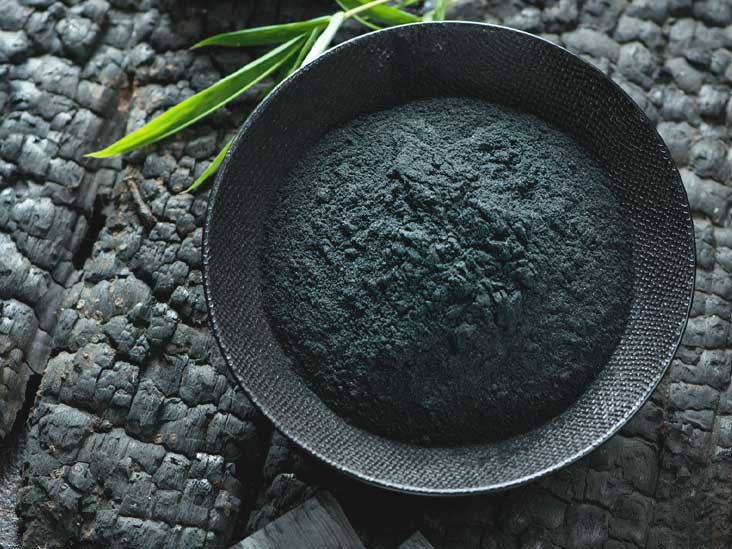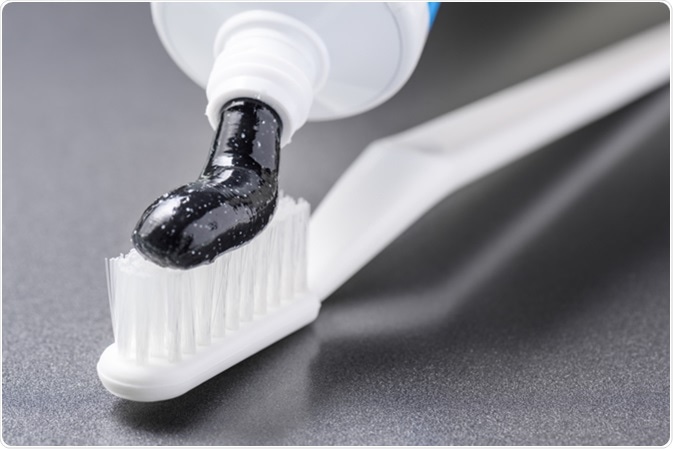People having dental health issues often look for the benefit of charcoal toothpaste. It is helpful in many dental issues, such as stains, plague, and bad order. Good dental health plays a very crucial role in our life. When we talk about mental health, it is collectively used for teeth, gum, and mouth. With good dental health, we can enjoy all tastes without having any kind of sensitivity. On the other hand, a troubled dental health main cause problem is in eating food, and it can also lead to other types of social embarrassment. The use of charcoal in cosmetics and dental care products is highly in trend these days. If you want to know the benefits of charcoal toothpaste, follow this post until the end.
Table of Contents
What Is Activated Charcoal?
Before we discuss further the application of activated charcoal in dentistry, let’s understand the term in the first place. Activated charcoal is basically a form of carbon that is treated to make its surface porous. It is oxidized under a great temperature so that its particles can act as a magnet to absorb the impurities from the surface of a substance. Activated charcoal has several applications in beauty and skincare products. Besides, it has its application in the water filters to adsorb the impurities of water and make it potable.

Use Of Activated Charcoal Toothpaste In Dentistry
The use of activated charcoal in dentistry is not a very old trend; it started in the 20th century. Primarily it is effective for the whitening of the teeth. As we know, activated charcoal is a processed form of charcoal made with the purpose of making it more porous so that it can adsorb more impurities. Besides, the processed activated charcoal is highly oxidized, and its negative charge tends to attract positively charged substances. When applied in dentistry, it treats the mouth plague, stains, and bad odor. It has the ability to absorb the components causing tooth decay and poor oral health.
How Is Activated Charcoal Beneficial For Oral Health?
Below is the list showing the benefit of charcoal toothpaste:
1: Removes The Stains On The Tooth’s Surface
Activated charcoal can extract the superficial stains that exist on the surface of the teeth. When you ignore proper brushing and tooth care, the superficial stains will start depositing on the outer part of the teeth, referred to as enamel. This gradual deposition of the stains can be caused due to several reasons such as smoking, consuming tobacco, jaggery, and several others. In the beginning, they make your teeth look hideous and gradually start damaging them to the core. Activated charcoal acts as a magnet to pull these detrimental substances and help you retain your natural glowing teeth. However, it is not very effective in removing the internal stains of the teeth.
2: Remove Existing Plaque And Poor Odor
Another benefit of charcoal toothpaste is that it can alleviate acidity by combining with acidic particles and increases the pH level. A high level of PH demineralizes the teeth, which can bring forth cavities. By interacting with the acidic compounds, activated charcoal toothpaste reduces the risk of the cavity and accelerates the removal of acidic substances. After the removal of the dental plaque, you can get rid of the bad odor of the mouth.
3: Antiviral and Antifungal Benefits
Activated charcoal also offers antimicrobial quality, and it can kill microbes such as viruses, bacteria, fungus, and several others. These microbes are not good for oral health and can harm it in several ways. The application of activated charcoal toothpaste is credited to eliminate the virus and bacteria developing inside the mouth. When you ignore them, it can bring forth serious oral healthcare issues. To get rid of this troubling oral health condition, you can switch to charcoal toothpaste.
Is Charcoal Toothpaste All Good?
After reading the benefits of charcoal toothpaste, if you think that it is all good, then hold your horses. There are several risks of the use of charcoal toothpaste in your day-to-day life. Activated charcoal has abrasive properties that can affect the outermost layer of the teeth, known as enamel. To know the major detrimental effects of this toothpaste, have a look at the below-given points:
1: Shows Abrasive Properties
Opposite to the benefit of charcoal toothpaste, it also shows abrasive properties that can wear down the topmost layer of your teeth. The erosion of the upper layer can bring forth several other issues, such as teeth sensitivity. This is why it is not suitable for daily use.
2: Lacks Fluoride
Fluoride is an important constituent particle of toothpaste. It makes the uppermost layer enamel stronger. However, if your toothpaste is lacking this essential ingredient, it may eventually lose its effectiveness. Therefore, you should check if your toothpaste has Fluoride before finally purchasing one.
3: May Cause Inflammation
Sometimes activated charcoal toothpaste gets in between the cavities for the stains and causes inflammation. This information can be really annoying and can promote oral trauma. Furthermore, it can lead to other dental complications. If you are not getting the desired result from your charcoal toothpaste, it is wise to pay a visit to your dentist.
4: Long Term Use Is Not Verified
A benefit of charcoal toothpaste that says it can remove the stain below the enamel or it can help teeth retain their natural white glow is not proven yet. It requires more scientific evidence to include charcoal toothpaste in your day-to-day life. If you are planning to do so, better understand your specific Dental Care needs in the first place.
Conclusion
In this post, we have seen the benefit of charcoal toothpaste. Also, we have discussed the harmful effects of activated charcoal toothpaste in day-to-day application. There are very limited studies that show if it is truly beneficial for optimal Dental Care. However, you can ask your dentist to what extent you can use it for your oral care. If you want more posts, keep coming back to our blog section.






Comments are closed for this post.